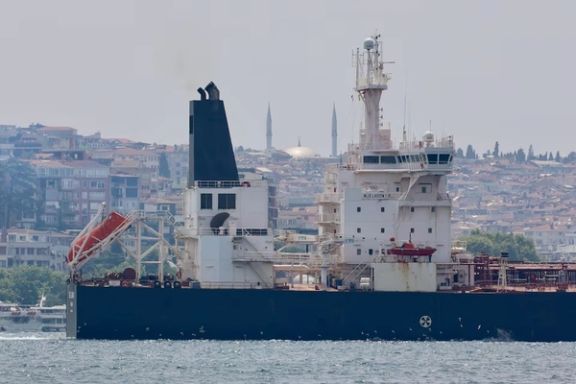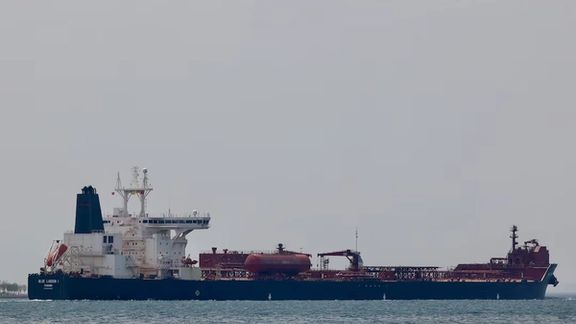Iran-backed Houthis attack another Greek-operated vessel in Red Sea

The Iran-backed Houthis in Yemen targeted a crude oil tanker in the Red Sea amidst its blockade targeting global shipping, with a Greek-operated vessel struck in the latest attack.

The Iran-backed Houthis in Yemen targeted a crude oil tanker in the Red Sea amidst its blockade targeting global shipping, with a Greek-operated vessel struck in the latest attack.
The US Central Command said in a statement that the Saudi-owned Amjad vessel and the Panama-flagged and Greek-operated Blue Lagoon I were hit in an attack but Saudi Arabia later denied the assessment.
However, Saudi’s national shipping company, Bahri, announced on Tuesday that "Amjad was not targeted and sustained no injuries or damage."

The vessel, which was carrying approximately two million barrels of crude oil, remains seemingly fully operational and is continuing its voyage to its planned destination without interruption.
Bahri emphasized that all relevant authorities were promptly informed, and that the company remains in continuous communication with its crew, closely monitoring the evolving situation.
Iran has vocally supported and praised the Houthis, but rejected claims that it has provided them with arms. The Houthis are a designated terror group by countries including the US and UK.
The US Central Command earlier revealed that the Houthis launched the assault using two ballistic missiles and an unmanned aerial vehicle, striking both vessels, calling the move "reckless acts of terrorism by the Houthis."
Although the Houthis claimed responsibility for targeting the Blue Lagoon with missiles and drones, they made no mention of the Amjad.
The Joint Maritime Information Center, responsible for tracking such incidents, reported that three ballistic missiles hit the Blue Lagoon I tanker 70 nautical miles northwest of the Yemeni port of Saleef.
The center "assesses that Blue Lagoon I was targeted due to other vessels within its company structure making recent port calls in Israel," it said in a report.
"All crew on board are safe. The vessel sustained minimal damage but does not require assistance."
Saudi Arabia, the world’s leading oil exporter, has expressed growing concern over the increased frequency of Houthi attacks on ships in the Red Sea, a maritime corridor for global energy supplies.
The attacks are part of a broader campaign by the Houthis, who have been emboldened by Iran’s support, and have dragged Yemen to become the region's poorest nation after a decade-long war civil war against a Saudi-led coalition.
The recent escalation follows a series of aerial drone and missile strikes by the Houthis, which they claim are in solidarity with Palestinians amid the ongoing conflict in Gaza, in a bid to force Israel into a ceasefire.
The Houthis began targeting maritime commercial traffic in mid-November, following a directive from Iran’s Supreme Leader Ali Khamenei, who urged Muslim nations to impose a blockade on Israel.
Initially concentrated in the Red Sea, these attacks have since spread to other vital waterways, including the Indian Ocean, disrupting international shipping and resulting in the capture of dozens of seafarers.
In response to this growing threat to global trade and freedom of navigation, a US-led coalition of over 20 nations has been formed to counter the blockade. It has seen joint attacks by the UK and US on Houthi infrastructure in Yemen.